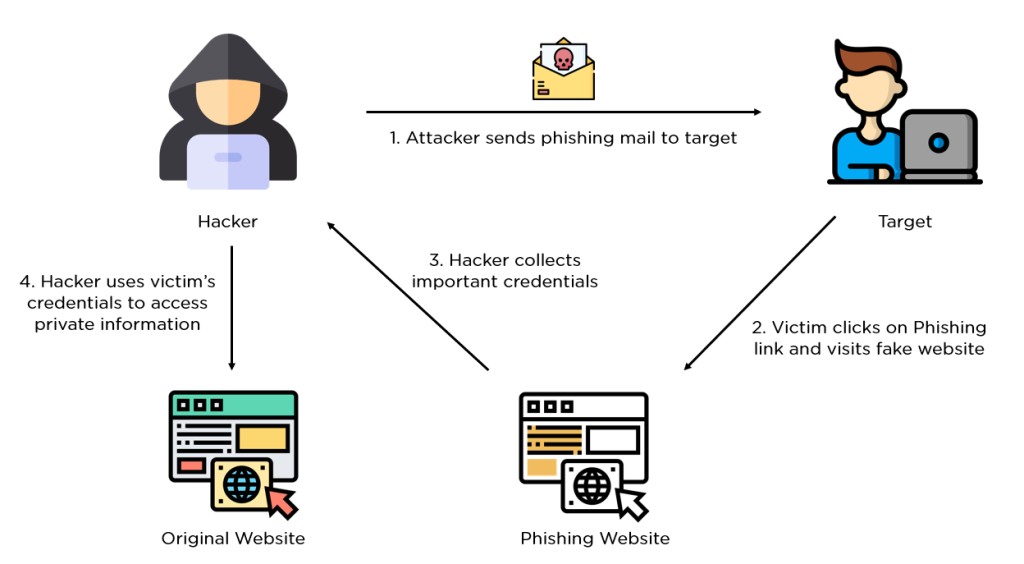Description: This blog highlights some of the popular scams that website owners need to look out for. It will also highlight the consequences of falling for such scams.
Introduction to Scams
In today’s digital landscape, there are millions of scammers out there targeting website owners to ruin their reputation and their financial status. Website owners need to beware of phishing attacks, fraudulent SEO services, and domain name scams. These are some of the most common and easier ways scammers target website owners. Let’s take a look at these scams more deeply.
Phishing Attacks
“Phishing” refers to an attempt to steal sensitive information, typically in the form of usernames, passwords, credit card numbers, bank account information or other important data in order to utilize or sell the stolen information. By masquerading as a reputable source with an enticing request, an attacker lures in the victim in order to trick them, similarly to how a fisherman uses bait to catch a fish (hence the name phishing).

The scammers typically use emails and messages to get you to fall into their trap. They make you click on a link that takes you to the phishing site which then collects your information. Your information is very valuable to them because they can do all sorts of things with it, like hack into your website. This can be very dangerous (especially if you have an online business website) because the scammer can get access to all of your customer’s data. This can deeply ruin your online reputation and prevent you from ever selling things online.
Fraudulent SEO Services
As a website owner, you’ve probably already received unsolicited email pitching SEO services, and you may be wondering whether some of these offers are worth pursuing.
Some of the most common SEO scams include
- Guaranteed Rankings
- Fake Google Lighthouse Reports
- Fake Traffic
- Calls From Fake Google Employees
Scammers usually send scary looking emails to highlight numerous problems with your website in an effort to get you to email them back for a solution. They will send you images with a scary-looking “score” and lots of red marks. This causes you to panic and makes you want to email them back for a quick solution. But remember to never fall for this trap. It’s a psychological tactic that can make you take quick actions without even realizing if it’s legitimate or not. They then charge you with a lot of money, which can negatively affect you financially.
Domain Name Scams
Many website owners receive offers from companies trying to trick them into purchasing domain services. Unscrupulous domain name registrars generate revenue by tricking businesses into selling, listing, transferring or converting their domain name. You may receive a “renewal” notice on email notifying you that your domain is about to expire and in addition they may offer you “discount” pricing.
Here are some of the tips to avoid domain name scams
- Know your domain registrar and when your domain name will expire
- Lock your domain so it can’t be transferred without you unlocking it
- Use the auto renew features available with your registrar so your domain is always up to date
- Always renew your domain through the original registrar
Consequences of Falling For These Scams
The consequences of falling for a scam can be devastating and very harmful to your business. It can ruin your business reputation very negatively. You start becoming unreliable and start losing customers. Falling for scams can also cost you a lot of money.

Conclusion
In conclusion, these were some of the most common scams website owners should look out for. Avoid phishing scams, fraudulent SEO services, and domain name scams. If you suspect any red flags, make sure to take necessary precautions. The consequences of falling for a scam can be devastating and very harmful to your business.
